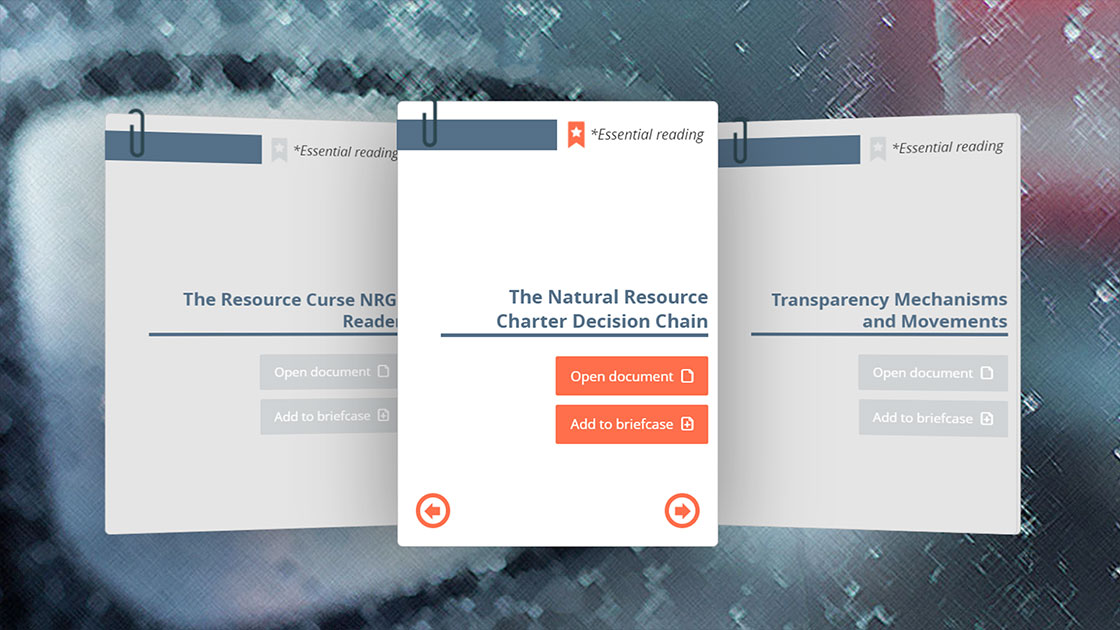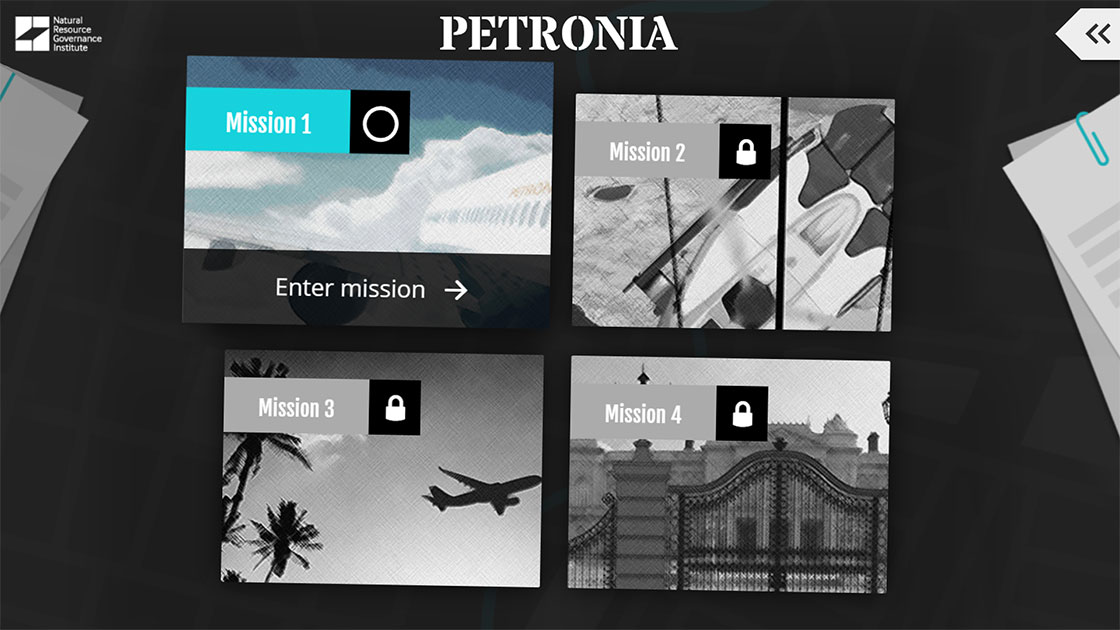
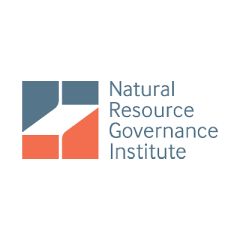
The Natural Resource Governance Institute (NRGI) is a think tank based in New York. NRGI aims to help countries realise the development benefits of their natural resource wealth and how that can be achieved through effective, transparent and accountable management of oil, gas and mineral resources, for the public good.
NRGI approached Saffron to develop a serious game that would introduce a wide audience to the principles of resource governance. The audience could cover students at university, officials, activists, journalists and NRGI’s own staff.
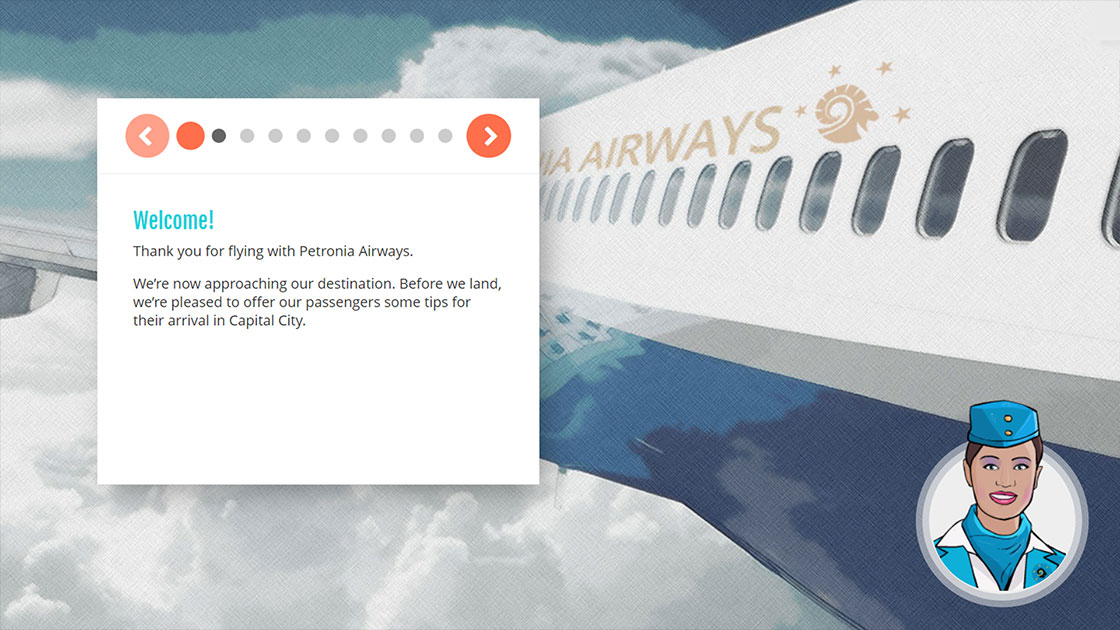
With such a wide audience, the serious game had to be both a learning experience but also appealing.
NRGI wanted learners to be able to identify the core issues around resource governance, the resource curse and distinguish where their roles sit in the governance and decision chain.
Alongside the course, NRGI also needed a reporting solution which would help the organisation to track information as users progressed through the training material which would then be used for further analysis. The collected data included the demography of people using the course, and the drop-off points.
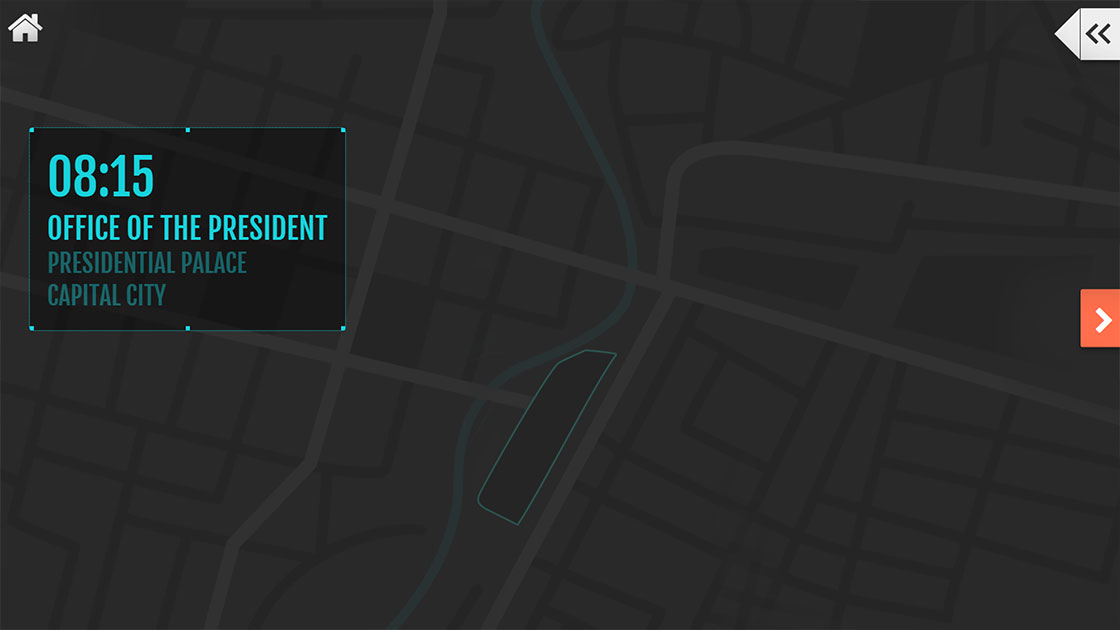
Saffron has been a Top 20 Gamification company as voted by Training Industry for a number of years. Our experience in game-based simulations, with rich media and compelling narratives is second to none.
These create an emotional bond with the learner, using insights from behavioural science and fitted with NRGI’s vision of the experience they wanted for their learners.
Also, Saffron’s experience in developing bespoke solutions that make an impact and the dual expertise of content and platform led NRGI to partner with us.
Saffron created memorable characters such as Alain Lille the owner of a petroleum company who spent a fortune looking for oil in Petronia, a former colony known previously only for cashmere wool. He took the risk and signed a deal with the old government, so he was poised to reap the rewards. But in last year’s election, a new president came to power, promising a better deal for the people. She has invited four foreign “experts” to advise her.
As a player, you take on the role of that pesky foreign adviser eavesdropping on Mr Lille. You network at a drinks reception, visit the presidential palace, the capital city’s cafés and markets, and the coastal district of Neftala, where the oil was discovered. Each visit is a standalone mission and you are asked to balance priorities and stakeholders across complex decision making.
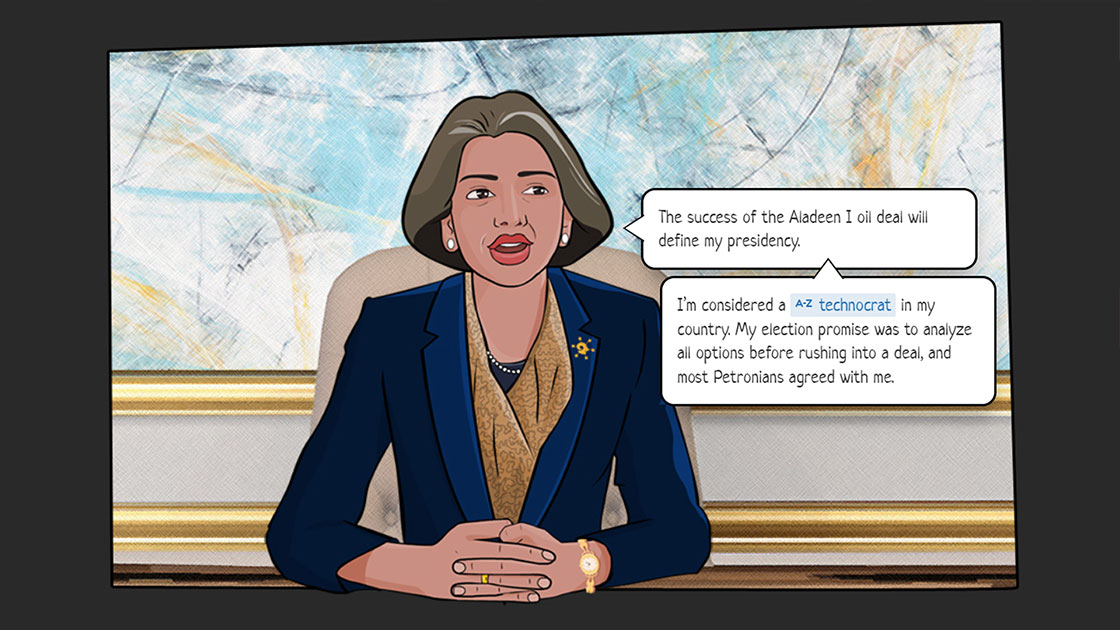
You must meet the challenge of advising on how a good deal can be reached, and how the revenue from the oil can be turned into sustainable development for the country’s inhabitants. Throughout the process, you are involved in putting forward recommendations, but first you meet your challengers at the national resources advisory council meeting. You have to negotiate and weigh up differing interests of ministers, oil dragons, MPs, journalists and local activists.
Next you have to advise on the strategy for how the government should manage and distribute its resource revenues. You visit government departments and rural areas to see the impact on local communities. And so the missions continue with thoughtful but stunning hand-drawn graphics and life-like animations.
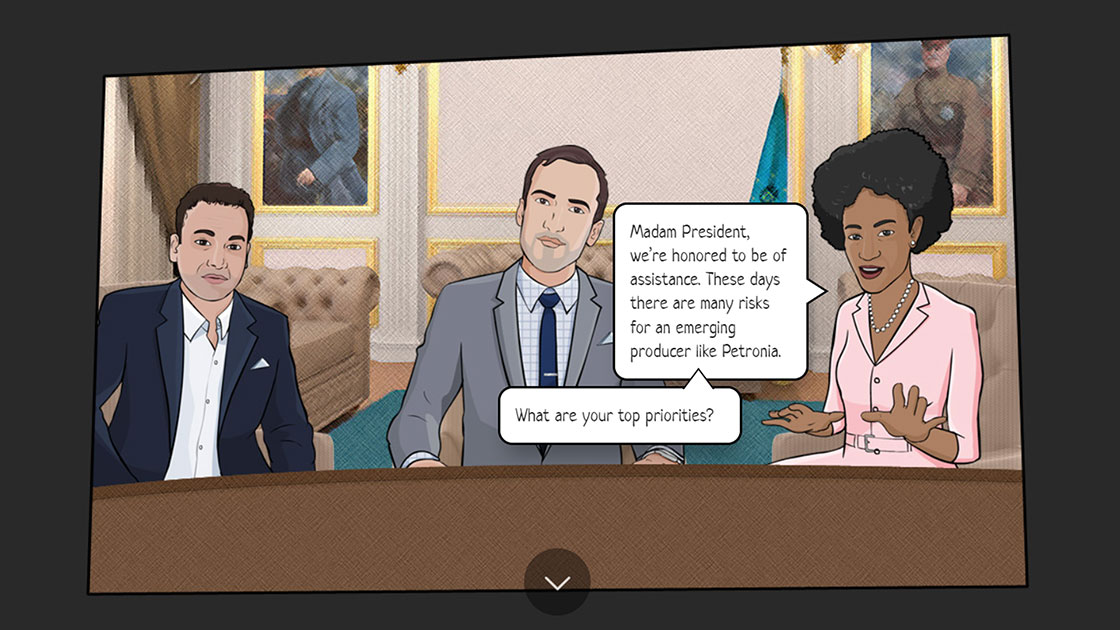
The last mission is set eight years after the government had developed their policy plan. The president’s term was about to end and public approval ratings were at a low. Data had been collected on key indicators of the government’s resource governance practices. Based on the evaluation of these findings, the learner then develops further priorities for the government to focus on. Here again the player has to weigh up policy proposals by different experts and asses the risks associated with these but now with the added hindsight of the long-term effects of policy decisions.
The Economist called this experience “Grand theft Petro”. The gaming interactions were real and engaging and users have been reached across all the demographic areas that NRGI wanted to be able to attract. 94% of users indicated that the course improved their knowledge on resource governance and half of these stressed this improvement was to a great extent. Users particularly stressed the narrative and the exercises as a strength of the solution.
Petronia has become part of an online course offered by NRGI in collaboration with the Columbia Center on Sustainable Investment and the World Bank.
